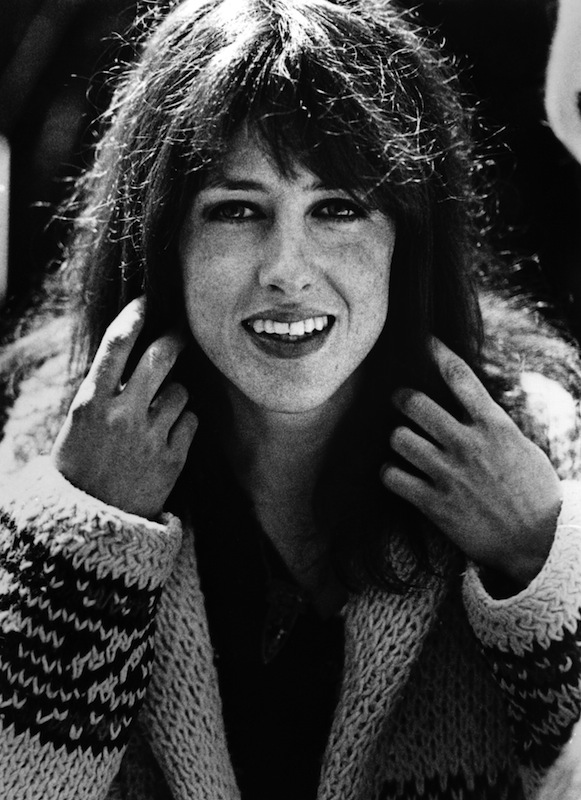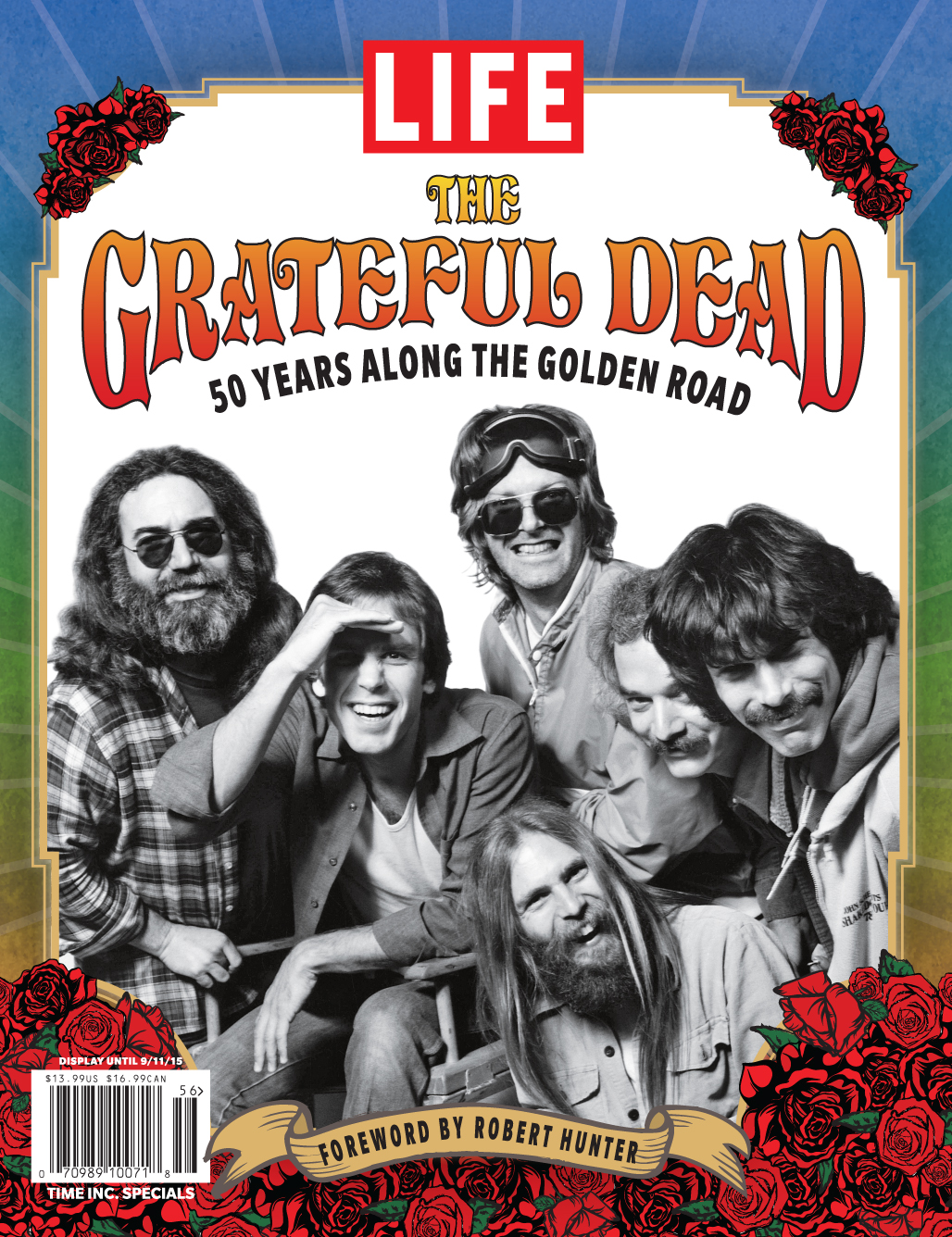
If two personalities emerged from the San Francisco scene larger than life, they were Jerry Garcia and Grace Slick. They traveled in the same circles; they were friends. She—warmly—recalls the time in an interview with LIFE Books. Read an excerpt from that interview, here on Time.com:
“I came in a bit after the Warlocks,” Grace, 75 now—and isn’t that something, Grace Slick is 75?—says shortly before the sun rises in Southern California. These days, she is up predawn and enjoys the day—as best as she can. “As Bette Davis said, growing old’s not for sissies. I’ve got diabetes. I’ve got this weird thing where I can’t fly because my feet swell up,” Grace notes.
“So when I met them they were already the Grateful Dead. At the time, you don’t think, Oh this is gonna be noteworthy, I better remember this, it’ll be important in 50 years . . . You just are kind of hanging out. I was with a group called the Great! Society when I met the Grateful Dead. I was not in Airplane yet. But all the bands, like the Charlatans, the Grateful Dead, Jefferson Airplane, Janis, all those people—we all played the same venues. So we saw each other on a fairly regular basis in the early days.
“It was pretty much a community. The guys would play inter-band with each other either at a folk house after [shows] or on the weekend or something. We all knew each other and we would party together. The Dead had a ranch up in Northern California and they would throw parties there. And there would be writers and musicians and, you know, local freaks like us.
“We would all shelter, for lack of a better word, ‘shelter’ each other, you know. You could stay at the Airplane house—I know people stayed there off and on for one reason or the other—stay there for a month or whatever, and the same thing went with the Dead ranch. I don’t know which one of them owned the ranch. As I said, if I had known that I would be answering these kinds of questions 50 years later, I might have written it down so I’d know what I was talking about. But at the time we were all just kind of hanging out and doing what we did, making music, taking drugs, screwing each other, having a good time, because there is nothing quite as wonderful as being in your twenties in the ’60s. There was no AIDS. Anything you got, a sexually transmitted disease, could be cured. I know because I got them. I went in the hospital for four days once, a bunch of IVs and stuff and then you get out and you’re okay.
“There’d be writers and people [at the Dead ranch], and there’d be like a barbecue going on and people taking acid and wandering around. There was a swimming pool! You could go nude or you could wear a bathing suit if you wanted to, and it didn’t matter. There were children running around. So it was this kinda pleasant free-for-all for what we called ourselves: ‘freaks.’ You know, because we were freaks compared to the straight nation.
“So, yeah, the barbecue. And we also went shooting guns. We didn’t shoot animals, we shot at, you know, those wooden barriers that police put up? Sawhorse—that’s what it was called. We’d shoot at those or shoot at a tree or something. But it was really stupid because we’re musicians—Quicksilver and the Grateful Dead and the Airplane—and we were deaf for about a week. So you know that’s really stupid, when you’re a musician, to deafen yourself.
“The record companies came and signed us. So we got paid basically to do what 20-year-olds like to do day to day: sex and drugs and travel. We got paid to travel. You know, wherever our manager would book us.
“And we didn’t have to change our clothes during the sets. They were lucky if we showed up. I mean, we didn’t have to have funny outfits or exploding chickens or dancing boys or any of that kind of stuff. It was just you show up, you play your music, and then you either go home or you go to another club—a club that’s open. It was just very easy. Rock ’n’ roll is not a difficult medium. It was marvelous. All the people who say, ‘Well Janis was miserable and Garcia was miserable and Jim Morrison’—no, they weren’t.”
“But heroin is different from alcohol. Alcohol, unless you have a car accident, alcohol is usually a slow, stupid death. When you say, I think I’ll have a little more heroin, a little more could kill you. But with alcohol a little more just makes you a little drunker. And then over the years you’re . . . well, you get fired from your job or your wife leaves and then your liver, and it’s a slow, stupid death. Heroin is very sudden. And we were young and stupid in some ways, in a lot of ways. So you have just a little bit more, and . . . You just have a little more and it’ll kill you.”
Read the rest of Grace Slick’s interview with LIFE in the new LIFE special edition The Grateful Dead: 50 Years Along the Golden Road.

LIFE’s special edition The Grateful Dead: 50 Years Along the Golden Road is available now. Pick up your copy in stores today. Digital edition available at TimeSpecials.com
More Must-Reads from TIME
- Inside Elon Musk’s War on Washington
- Why Do More Young Adults Have Cancer?
- Colman Domingo Leads With Radical Love
- 11 New Books to Read in February
- How to Get Better at Doing Things Alone
- Cecily Strong on Goober the Clown
- Column: The Rise of America’s Broligarchy
- Introducing the 2025 Closers
Contact us at letters@time.com